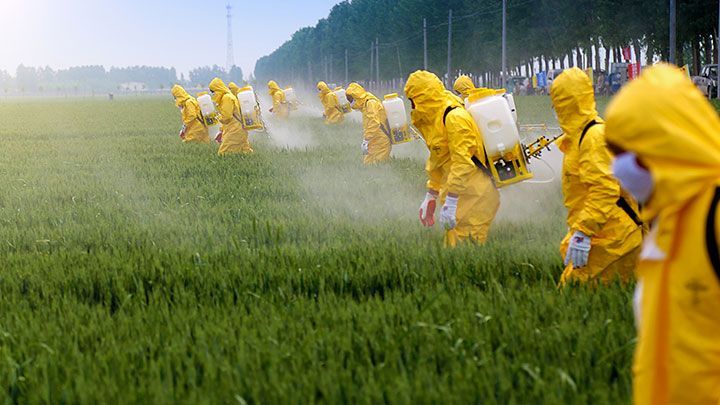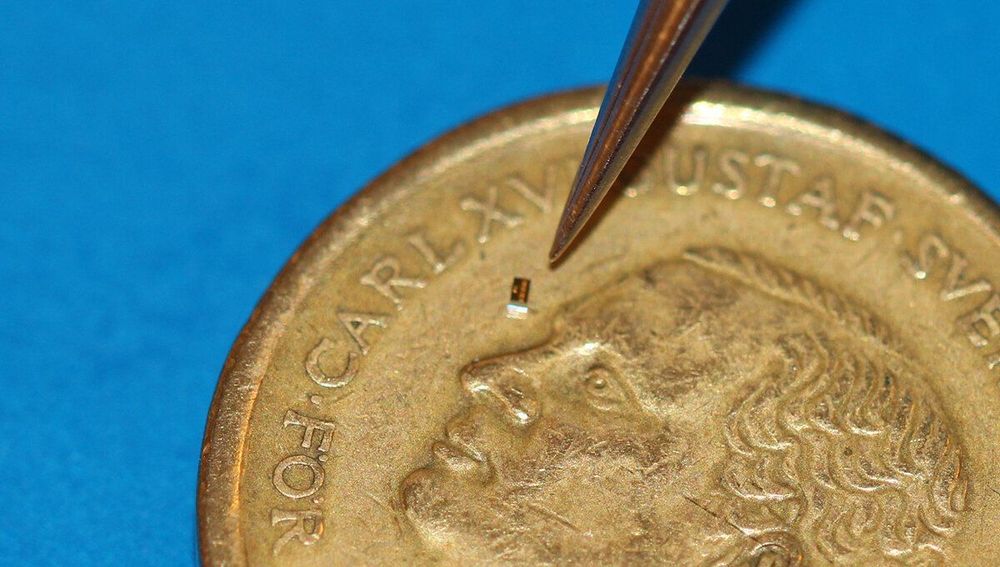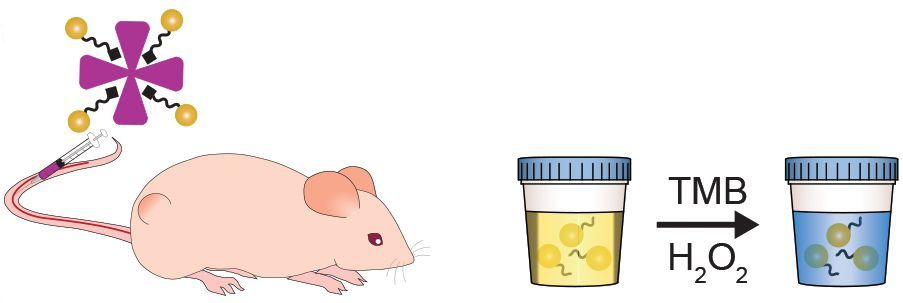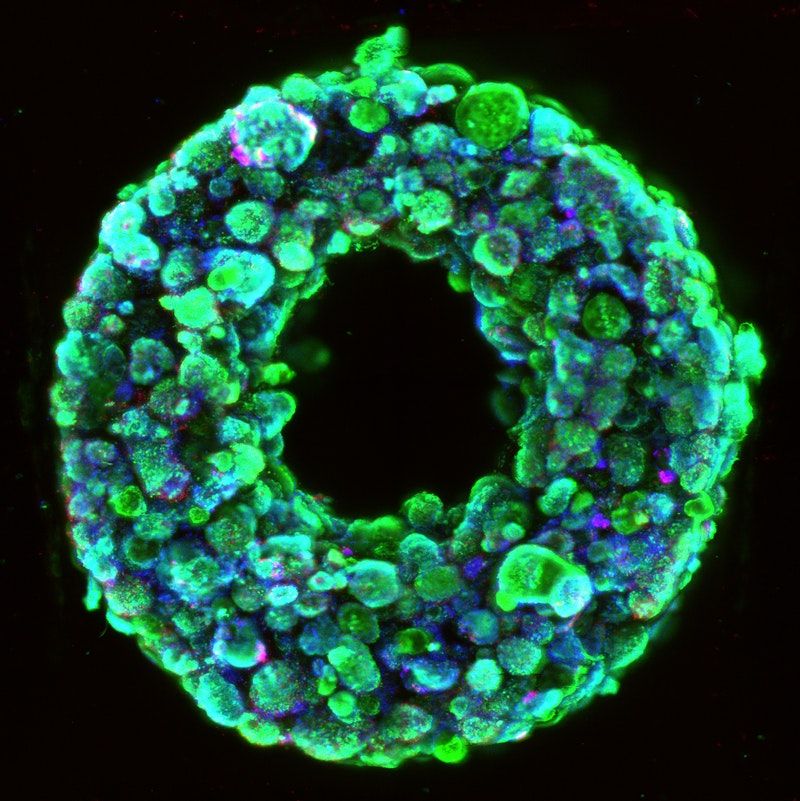Study blames Roundup herbicide for gluten intolerance and celiac disease epidemic.



Researchers at Mayo Clinic have identified the enzyme, called CD38, that is responsible for the decrease in nicotinamide adenine dinucleotide (NAD) during aging, a process that is associated with age-related metabolic decline. Results demonstrated an increase in the presence of CD38 with aging in both mice and humans. The results appear today in Cell Metabolism.
“As we age, we experience a decline in our metabolism and metabolic function. This increases the incidence of age-related metabolic diseases like obesity, diabetes and others,” says Eduardo Chini, M.D., Ph.D., anesthesiologist and researcher for Mayo Clinic’s Robert and Arlene Kogod Center on Aging and lead author of the study. “Previous studies have shown that levels of NAD decline during the aging process in several organisms. This decrease in NAD appears to be, at least in part, responsible for age-related metabolic decline.”
In this study, researchers at the Center on Aging have shown that CD38, an enzyme that is present in inflammatory cells, is directly involved in the process that mediates the age-related NAD decline. Comparing 3- to 32-month-old mice, researchers found that levels of CD38 increased at least two to three times during chronological aging in all tissues tested, including the liver, fat, spleen and skeletal muscle.

Researchers at the Universities of Abuja and Nigeria, in collaboration with the University of Bristol, have detected a potentially human-infective microbe in pet dogs in Nigeria.
Dogs in tropical Africa run the risk of contracting canine trypanosomosis if they are bitten by bloodsucking tsetse flies carrying trypanosomes – microscopic, single-celled organisms found in the bloodstream. In dogs, this disease runs a severe course and is often fatal; “white eyes” or corneal cloudiness is one of the characteristic and obvious signs of the disease.
Sick dogs suspected of trypanosomosis are frequently brought to the University of Nigeria Veterinary Teaching Hospital (UNVTH) in Nsukka, where diagnosis relies on examination of a blood smear under the microscope. While trypanosomes are easily detected by their rapid motion among the blood cells, it is hard to determine the exact species of trypanosome by microscopy alone.

Pet cloning is illegal in many countries but approved in several states including South Korea and the US, where the singer Barbra Streisand announced last year she had cloned her dog. The first significant success in animal cloning was Dolly the sheep, born in Britain in 1996 as the first mammal cloned from an adult cell. In 2005, researchers in South Korea cloned the first dog.
As Chinese spending on pets increases by up to 27% year on year, a Beijing firm has created its first cloned kitten
AFP/Getty.

In what could be a breakthrough for body sensor and navigation technologies, researchers at KTH have developed the smallest accelerometer yet reported, using the highly conductive nanomaterial, graphene.
Each passing day, nanotechnology and the potential for graphene material make new progress. The latest step forward is a tiny accelerometer made with graphene by an international research team involving KTH Royal Institute of Technology, RWTH Aachen University and Research Institute AMO GmbH, Aachen.
Among the conceivable applications are monitoring systems for cardiovascular diseases and ultra-sensitive wearable and portable motion-capture technologies.

Bioengineers and life scientists incorporate hybridoma technology to produce large numbers of identical antibodies, and develop new antibody therapeutics and diagnostics. Recent preclinical and clinical studies on the technology highlight the importance of antibody isotypes for therapeutic efficacy. In a new study, a research team in Netherlands have developed a versatile Clustered Regularly Interspaced Short Palindrome Repeats (CRISPR) and homology directed repair (HDR) platform to rapidly engineer immunoglobin domains and form recombinant hybridomas that secrete designer antibodies of a preferred format, species or isotype. In the study, Johan M. S. van der Schoot and colleagues at the interdisciplinary departments of immunology, proteomics, immunohematology, translational immunology and medical oncology, used the platform to form recombinant hybridomas, chimeras and mutants. The stable antibody products retained their antigen specificity. The research team believes the versatile platform will facilitate mass-scale antibody engineering for the scientific community to empower preclinical antibody research. The work is now published on Science Advances.
Monoclonal antibodies (mAb) have revolutionized the medical field with applications to treat diseases that were once deemed incurable. Hybridoma technology is widely used since 1975 for mAb discovery, screening and production, as immortal cell lines that can produce large quantities of mAbs for new antibody-based therapies. Scientists had generated, validated and facilitated a large number of hybridomas in the past decade for preclinical research, where the mAb format and isotypes were important to understand their performance in preclinical models. Genetically engineered mAbs are typically produced with recombinant technology, where the variable domains should be sequenced, cloned into plasmids and expressed in transient systems. These processes are time-consuming, challenging and expensive, leading to outsourced work at contract research companies, which hamper the process of academic early-stage antibody development and preclinical research.
In its mechanism of action, the constant antibody domains forming the fragment crystallizable – (Fc) domain are central to the therapeutic efficacy of mAbs since they engage with specific Fc receptors (FcRs). Preceding research work had highlighted the central role of Fc in antibody-based therapeutics to emphasize this role. Since its advent, CRISPR and associated protein Cas-9 (CRISPR-Cas9)-targeted genome editing technology has opened multitudes of exciting opportunities for gene therapy, immunotherapy and bioengineering. Researchers had used CRISPR-Cas9 to modulate mAb expression in hybridomas, generate a hybridoma platform and engineer hybridomas to introduce antibody modification. However, a platform for versatile and effective Fc substitution from foreign species within hybridomas with constant domains remains to be genetically engineered.

Imperial College London biomedical materials scientist Molly Stevens teamed up with Massachusetts Institute of Technology biomedical engineer Sangeeta Bhatia to develop the approach, which they think has the potential to help patients in low-resource and rural areas, where available medical technology may be limited. Stevens specializes in low-cost catalyst-based diagnostics and Bhatia works on creating nanosensors that respond to enzymatic activity. The two combined their expertise to create nanoparticle-protein complexes that, once injected, can reveal the presence of disease-related enzymes through a simple urine test.
Sensor turns urine blue in the presence of tumor-related enzymes.
by.

While X-rays can produce harmful radiation, a new technique using laser-induced sound waves provides highly detailed images of the structures in our bodies.
» Subscribe to Seeker!http://bit.ly/subscribeseeker
» Watch more Elements! http://bit.ly/ElementsPlaylist
Photoacoustic imaging is an emerging imaging technique that shoots micro-pulses of laser light at a specimen or body part, which selectively heats up parts of the tissue causing them to expand, and generate waves of pressure – a.k.a. sound waves.
Ultrasonic sensors are situated to capture these microscopic changes, and a processing software then reconstructs the image based on what the sensors “hear.” The speed of the laser can be adjusted depending on what type of tissue one would like to visualize.
The photoacoustic imaging technique is beginning to take off in both the medical and scientific worlds, as it provides us with super clear, incredibly detailed images of the human body and the structures inside it.
Not to mention, the imaging technique causes no discomfort and there is no dangerous ionizing radiation involved, making it a desirable alternative to more traditional imaging, like a CT scan, ultrasound, or a PET scan.
Not only can this new imaging technology be used to image tissues at extremely high resolution, you can also introduce a foreign material, like a contrast dye or a specially designed nanoparticle, to see things you might not be able to otherwise.

Researchers are blurring the distinction between brain and machine, designing nanoelectronics that look, interact, and feel like real neurons. Camouflaged in the brain, this neurotechnology could offer a better way to treat neurodenerative diseases or control prosthetics, interface with computers or even enhance cognitive abilities.
Electrodes implanted in the brain help alleviate symptoms like the intrusive tremors associated with Parkinson’s disease but current probes face limitations due to their size and inflexibility. In a recent paper titled “Precision Electronic Medicine,” published in Nature Biotechnology, Shaun Patel, a faculty member at the Harvard Medical School and Massachusetts General Hospital, and Charles M. Lieber, the Joshua and Beth Friedman University Professor, argue that neurotechnology is on the cusp of a major renaissance. Throughout history, scientists have blurred discipline lines to tackle problems larger than their individual fields.
“The next frontier is really the merging of human cognition with machines,” says Patel. “Everything manifests in the brain fundamentally. All your thoughts, your perceptions, any type of disease.” He and Lieber see mesh electronics as the foundation for these machines, a way to design personalized electronic treatment for just about anything related to the brain. “Today, research focused at the interface between the nervous system and electronics is not only leading to advances in fundamental neuroscience, but also unlocking the potential of implants capable of cellular-level therapeutic targeting,” write the authors in their paper.